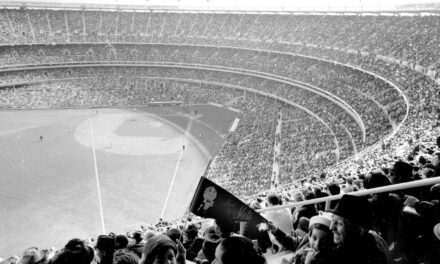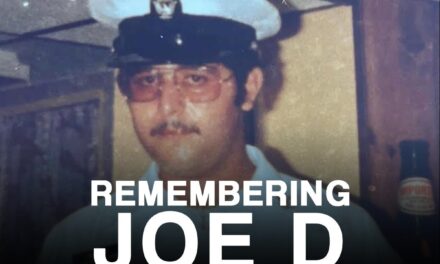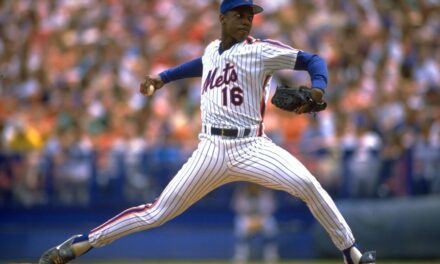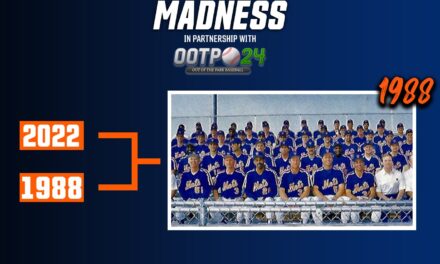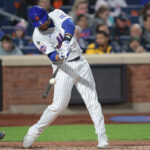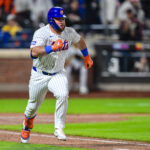There are 10 players eligible for induction into the Hall of Fame who have the Mets on some portion of their resume. We focus on an outfielder making his fifth appearance on the ballot who was quietly consistent as a division rival but ended his 18 seasons wearing orange and blue.
For much of his career, he was the enemy. But he ended with the good guys.
Bobby Abreu never really gave any reason to be hated, other than he wore the uniform of the Philadelphia Phillies for nearly a decade. He also never gave any reason to be considered a superstar or Hall of Famer.
All-Star selections? Two. Silver Sluggers? One. He never finished among the top 10 in MVP Award voting. He led the NL in games played twice, in doubles once (50 in 2002), triples once (11 in 1999), and walks once (124 in 2006), but otherwise never led his league in any major statistical category.
Abreu has been on the ballot four times and has yet to exceed 10 percent. The lack of attention from writers is a reflection of what he found during his prime.
By the time he was picked up by the Mets in 2014, he was well past that prime. Actually, he hadn’t been active since 2012. In 155 plate appearances over 78 games, he homered only once, drove in 14, and slashed .248/.342/.680.
So, while his impact on the Mets was negligible, the case of his entire resume is worth dissecting.
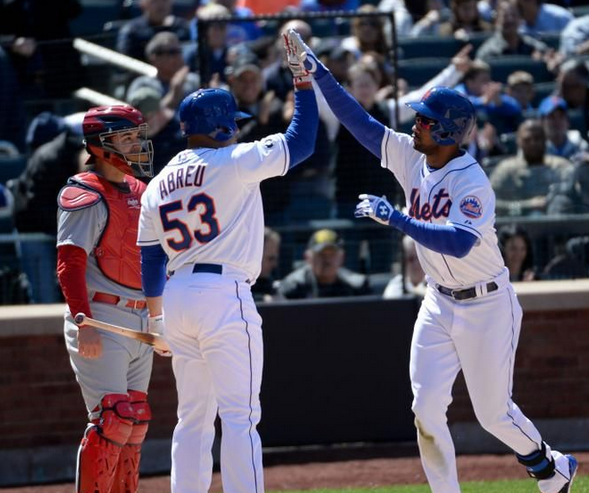
The Case for
It’s hard for on-base percentage to be the showcase statistic for a player’s Hall of Fame credentials, and it never got the respect it does now, but Abreu was one of the elite performers of this skill in his era.
While most of the top-level hitters were doing so with power numbers, Abreu was creating opportunities for his teammates to drive in runs.
Over his career, only Derek Jeter, Alex Rodriguez, and Chipper Jones reached base more times than Abreu 3,979. Abreu led the majors with 1,396 walks from 1998-2011 and his total is the 20th highest in MLB history. He recorded at least 100 walks or a .400-plus on-base percentage eight times over a nine-season span from 1998-06. The only players with more 100-walk seasons in the Divisional Era are Barry Bonds, Frank Thomas, and Jim Thome.
In what was arguably his best year, Abreu slashed .301/.428/.544 and became the only player to record at least 75 extra-base hits, 100 RBIs, 125 walks, and 40 stolen bases in a single season. He should have finished higher than 23rd in the MVP voting.
Abreu hit 288 home runs and stole 400 bases. Only four other players have reached those benchmarks: Craig Biggio, Rickey Henderson, Barry Bonds, and Bobby Bonds.
There are 27 right fielders in the Hall, and among them, Abreu ranks inside the top 10 in OBP, walks, steals, extra-base hits, and doubles. His 60.2 WAR is 15th among those enshrined and surpasses Vladimir Guerrero (59.5) and Ichiro (60.0). Abreu had seven seasons with at least 5.0 WAR—more than Jeter, Ichiro, Guerrero, Biggio, and Gwynn.
The Case Against
In addition to the paucity of bold type, as mentioned earlier, Abreu’s lack of All-Star nods and Silver Slugger selections over his 18-year career is quite glaring. Sure, it can be a sign of him being overlooked. But a Hall of Fame player should have a few more of both. Seven times Abreu received MVP votes, but never cracked the top 10. Even for WAR, while consistent, he was only in the top ten once (9th in 1999).
Abreu made very little impact in the postseason in the four times he appeared. In 1997 with Houston, 2006 and 2007 with the Yankees, and 2009 with the Angels, he was nothing more than a contributor. There was never a “Bobby Abreu moment” in October. In 20 playoff contests, he batted .284 with a .810 OPS, one homer, and nine RBIs. Those numbers don’t do anything to boost his resume. It’s unfortunate for him that he left the Phillies just before they took supremacy of the NL East.
He did win one Gold Glove but was generally perceived as a below-average outfielder throughout his career, and his defensive runs saved were -62 in total.
Final Thoughts
The beauty, and also deceiving thing, about statistics is that they can be manufactured to enhance or diminish one’s qualifications. That’s how Bobby Abreu can be seen as superior, in some sense, to Vlad Guerrero and Ichiro. Getting to a point where he’s a Hall of Famer in where the well runs dry. In fairness, what he did well did not have the glitter of a home run guy. The methods by which you produce shouldn’t be as significant as how well you produce. Abreu is a better player than many remember. But just not good enough to get to Cooperstown.


